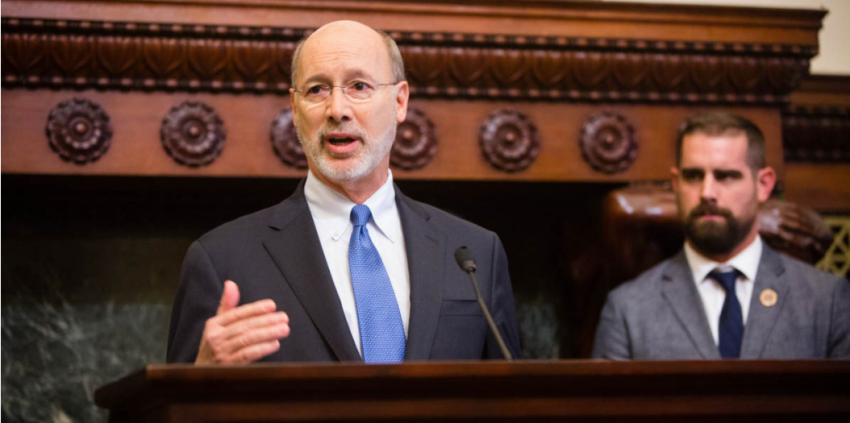Valverde Joins Governor’s Roundtable to Discuss Senate Bill

On Feb. 23, Kathy Valverde, associate professor and director of Genetic Counseling, presented to Pennsylvania Governor Tom Wolf at Swarthmore College about Pennsylvania Senate Bill 3 (SB3), which would limit the amount of time a woman has to terminate her pregnancy to 20 weeks, instead of at the end of her second trimester.
Valverde was asked to participate in the discussion by an alum, who is a constituent of the representative hosting Gov. Wolf’s roundtable. She spoke both as a genetic counselor and as the parent of a baby born with a life threatening condition, discussing not only the nightmare of telling patients that their unborn child is one of the 2 to 3 percent of children who develop birth defects, but the tragedy of losing a child shortly after birth.
“I spent every day in the hospital with him wondering if he would survive, and what his life would be like if he did,” Valverde told the governor. “The fear, sorrow, and stress of these months cannot be put into words. The grief was all consuming.”
Valverde said ultrasounds used to identify or detect problems in the developing fetus cannot be performed until 20 weeks mark of gestation, which would put undue pressure on families to make quick decisions after receiving the news that their baby has birth defects.
“It was distressing that the Senate didn’t take testimony from physicians on this bill,” said Valverde. “Anyone could have a child with a birth defect. Patients shouldn’t have to be pressured into making such an enormous decision in such a short amount of time. This bill is taking the medical decision out of the doctor’s hands.”
Additionally, Valverde said while many are focusing on abortion, there is another aspect of SB3 that is concerning for the physical and mental health of some women. Under the proposed bill, women who have late term miscarriages would not be able to have a Dilation & Evacuation procedure.
“The government should put its trust in women and their doctors to make these highly personal and emotional decisions,” said Valverde.


